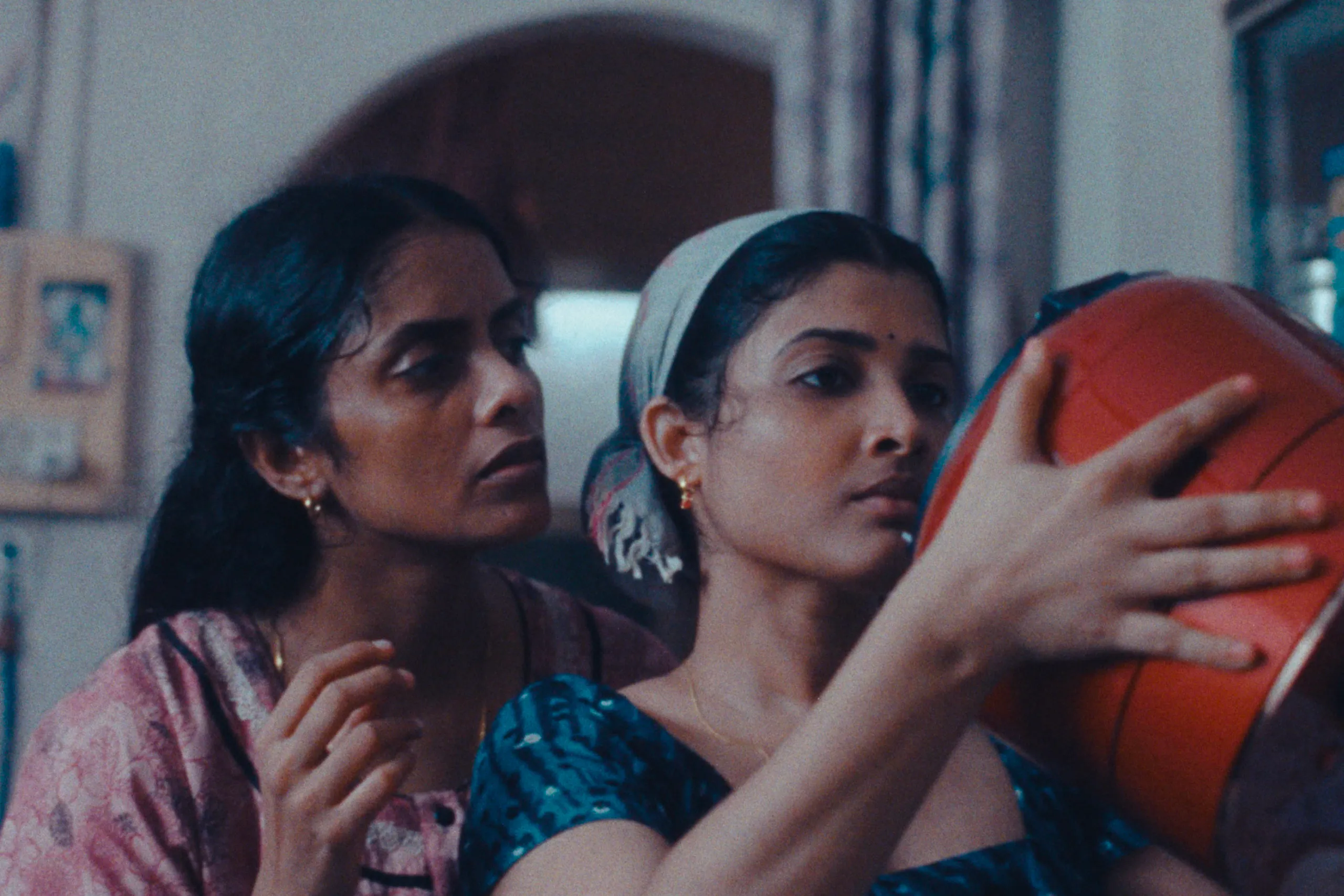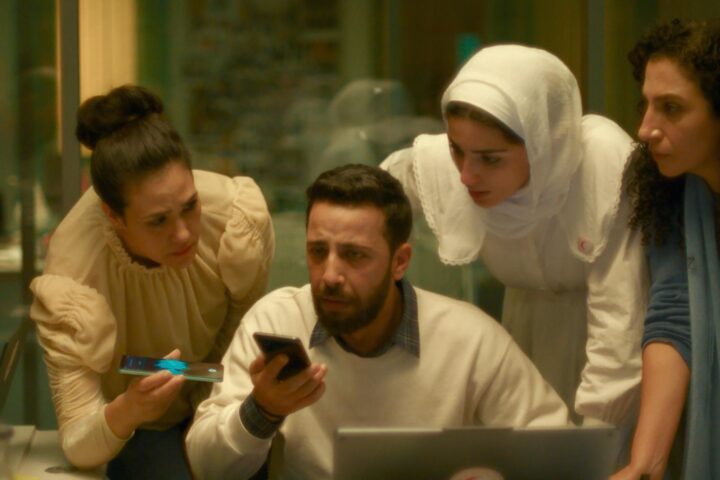In the Cannes-winning All We Imagine As Light (currently playing at Chicago’s Gene Siskel Film Center), writer-director Payal Kapadia presents a rich tapestry of three Mumbai women whose routine, work-a-day lives take on a poetic grandeur against the grit of their big city existence. This is urban social realism with a quietly beating heart of formidable solidarity for underclass dreams of making it in the city, in reality little more than a never-ending grind of disillusionments. Telling the story of two nurses and a hospital cook whose lives intersect practically to later become a tender sisterhood, Kapadia’s remarkable movie—about the lifelines of compassion, required by contemporary Indian women of little means to combat the hardscrabble—is perhaps the year’s most kind-hearted picture.
For Prabbha (a splendid Kani Kusruti), who day in and out makes a living as a caregiver in a lower-end urban hospital, it isn’t exactly the life she dreamed of, her husband having long since fled Mumbai and their marriage for work in Germany. She pushes on, compassionately tending to aged patients and teaching your students about childbirth, But years have passed, and she’s stopped believing in his return while presuming he’s dead.
If the movie hangs a romantic doom around Prabbha, her younger roommate, Anu (Diyya Prabba), also a nurse, is more optimistic, sneaking around for clandestine rendezvous with a secret Muslim boyfriend Shiaz (Hridu Haroon). While the elder Prabbha’s marriage was an arrangement, younger Anu pines for real love, however star-crossed. When a kindly doctor (Azees Nedumangad) shows smitten interest, Prabbha, still tethered to long gone matrimony, cannot allow herself to return his affections. The unexpected postal delivery of a rice cooker that seems to have Germany origins opens old wounds and questions. Is it a sign that Prabbha’s husband is still alive? A late-night scene where she clings tightly to the appliance is heartrending.
The third character in Kapadia’s triangle is an aged hospital cook named Parvaty (Chhaya Kadam), resigned to be forcibly thrown out of her apartment by a greedy condo developer. While ever-selfless Prabbha offers friendly support, the inevitable looms. Such economic pressures are ever present, the roommates struggling to make rent on their modest apartment. The cumulative weight of these stressors is etched in Prabbha’s sullen eyes as she wearily hops the late night bus home at all hours. During one passage a voice over tells us, “City of dreams. There’s an unspoken code in the city. Even if you live in the gutter, you’re not allowed to feel anger. You have to believe in the illusion.”

When the women leave the crowded bustle of Mumbai and their dead-end struggles to accompany Parvaty to her seaside hometown of Ratnagiri, Kapadia lets the film breathe, immersing it in nature, where the elements nudge each character toward transformation. Their shared journey drives pivotal shifts: one woman embraces renewal, another reconciles a long-suppressed disappointment in a scene as unconventional as it is perfect, while a third finds a sense of self in a love scene so tender it feels like an awakening. In these stretches, young Indian star Haroon, as Anu’s privately devoted lover, reveals a striking moment of acting vulnerability. In a cave filled with ancient relics and maybe modern graffiti, his disarming fragility punches through Kapadia’s feminine introspection.
The film’s technical achievements are exquisite, initially reflecting a world brimming with noise, grit, and relentless hurdles—much like the lives of Kapadia’s resilient modern Indian heroines. Through frequent voice-over narration, Mumbai seems less a land of opportunity and more a battleground to be conquered each long day. Amid the women’s anxious routines, composer Dhritiman Doss juxtaposes with minimalist piano compositions, creating tranquility amidst the melee. Cinematographer Ranabir Das captures the city as a dynamic swirl of movement, crowds, streetlights and shadows, later turning his camera to capture sharp contrasts when the picture arrives at the serenity of Ratnagiri’s seaside port. Here, sunlight, green forests and the sea transform the visual palette as Kapadia shifts the personal terrain beneath the women’s feet.
“You can’t escape your fate,” the film tells us at one point, yet Kapadia suggests that facing it together, as women navigating life without privilege, can transform their reality. Late in the story, Kapadia crafts a poignant exchange between Prabbha and an unconscious man rescued from the sea. “In the darkness, you try to imagine light,” he says, “but you cannot.” Yet in the film’s exquisite final scene—perhaps the most well-earned of the year—a shared collective kindness brightens the shadows. Winner of this year’s Cannes Grand Prix, All We Imagine As Light is sensitive embrace of unassuming, deeply human lives. Kapadia illuminates universal struggles in the hardworking everywoman, offering us characters whose resilience is worth caring about.
4 stars



